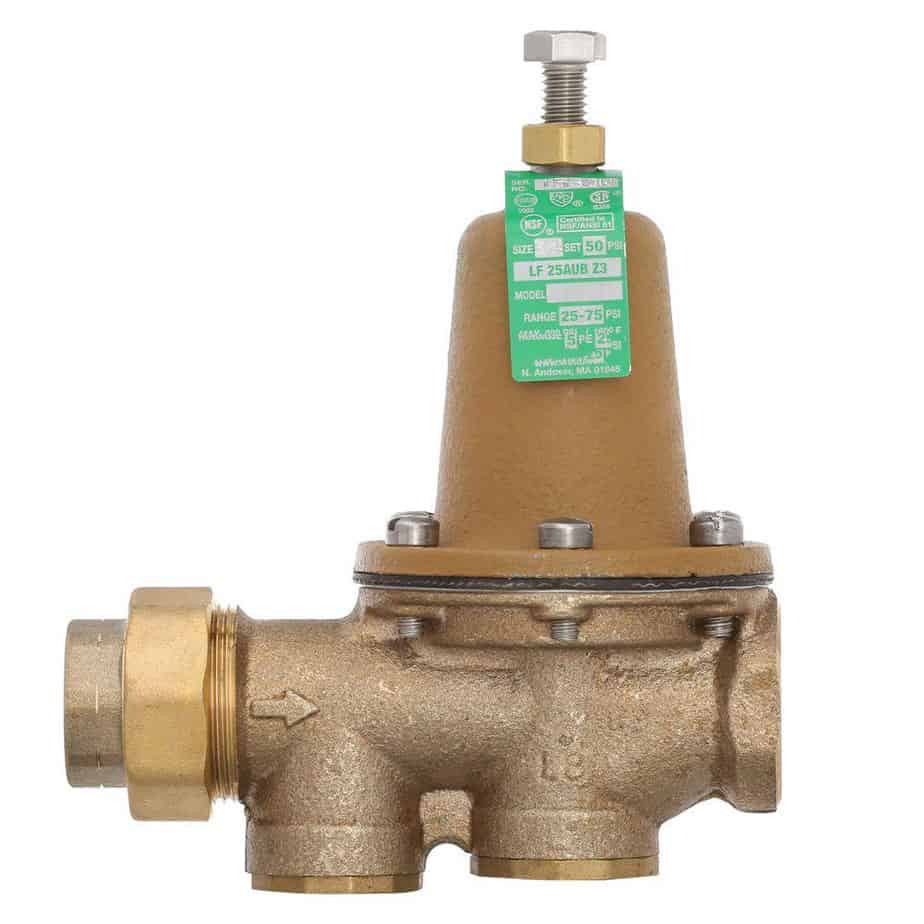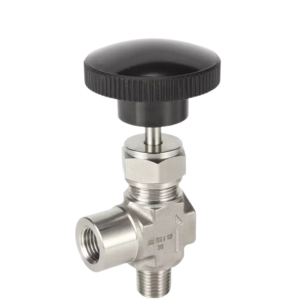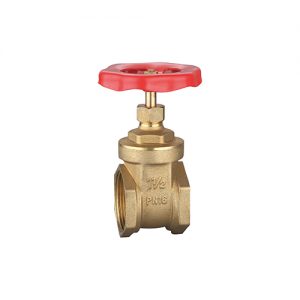Description
Adjustable Water Pressure Regulator
JX-0906
- Bronze raw materials
- 1/2″-2″
- PN25
- The valve is lead-free bronze with 3/4″ NH Threads (garden hose threads), which meets the US water plumbing system standard.
- Our durable Pressure Reducing Valve is designed to reduce incoming water pressure to a safer, predetermined downstream level.
- Hydro Master Water Pressure regulator valve with dual-layer inlet screened filter stops debris and protects the valve.
- Stainless steel pressure gauge with oil-filled to help reduce the friction of internal components and prolong service life.
- Adjustable water pressure gauge with scale displays, pressure ranges from 0-160PSI.
An adjustable water pressure regulator is a device used to maintain fixed water pressure, regardless of the fluctuations in the municipal water supply. It is important to read the manufacturer’s instructions carefully before installing or using an adjustable water pressure regulator. Improper installation or use of a pressure regulator can damage your plumbing and create a hazardous situation.
The adjustable water pressure regulator is attached to the main water supply line, usually after the meter. You must install the regulator so it will not be subjected to freezing temperatures. The outlet from the pressure regulator should be connected to the branch line leading to the fixtures that require lower water pressure.
It is important to remember that when adjusting the water pressure on your adjustable water pressure regulator, you are also changing the water pressure at all of the fixtures downstream from the valve. Before attaching garden hoses or other appliances that may require higher pressures than your household faucets can provide, be sure to make any necessary adjustments.
There are three pressure-reducing valves:
The diaphragm valve, the piston valve, and the rotary valve. A piston valve is preferred to a rotary valve because it has fewer moving parts and, therefore, less chance of malfunctioning.
A pressure-reducing valve can also be used with irrigation and sprinkler systems. The purpose behind this is that if the water supply line running to your car wash or landscaping company were suddenly restricted for some reason (such as a frozen pipe), the diaphragm valves would automatically shut off, effectively stopping any flow until such time when the main water supply line resumed its regular flow rate. This automatic shutoff feature prevents potentially hazardous situations from occurring should freezing temperatures strike unexpectedly during winter months before you can clear away all hoses and other attachments from your outdoor faucets.
When choosing a pressure-reducing valve, always get the correct size. Not all valves are created equal; some have smaller inlet and outlet diameters than others. You also want to ensure that the valve can handle the maximum flow rate for your particular application. Pressure-reducing valves come in both manual and automatic models. The mechanical model is preferred because it will sense any fluctuations in water pressure and make the necessary adjustments without you having to do anything.
Now that you know a little more about adjustable water pressure regulators, you can rest assured that your home’s water pressure is being taken care of, regardless of what Mother Nature throws your way!
Brass pressure-reducing valves are a type of valve
The regulate the water pressure in a plumbing system. They are made of brass, a solid and durable metal, and are available in manual and automatic models.
The manual mode allows you to adjust the water pressure yourself. At the same time, the automatic model senses any fluctuations in water pressure and makes the necessary adjustments without you having to do anything. Brass pressure-reducing valves are available in residential and commercial sizes, making them perfect for any application.
Thanks to their sturdy construction, they are also very reliable and can handle flows of up to 150 gallons per minute. So if you’re looking for a quality, reliable pressure-reducing valve, be sure to check out the selection of brass pressure-reducing valves from BrassCraft.
Benefits of Valves Bronze water pressure regulator valves are a vital part of the plumbing system, providing reliable and safe operation for residential and commercial buildings. Valves play an important role in ensuring the water pressure remains consistent, eliminating potential damage to pipes and other connected fixtures. But what are some of the key benefits of using valve technology?
Valves provide precise control over the flow rate and pressure of liquid or gas. This makes them essential components in all systems, from industrial production to home appliance maintenance. Valves also ensure that liquids flow only in one direction to prevent contamination, backflow, or overpressure issues. Additionally, they enable quick shutoff when needed and can be used as isolation devices to make repairs or modifications with minimal disruption.
Valve technology is incredibly durable and long-lasting due to its superior corrosion resistance properties.
Types of Valves
It’s an essential component of many plumbing systems. They control pressure and flow in the piping system, making them a critical component of any water system. Various valve types, including bronze water pressure regulator valves, are available for different applications.
Bronze water pressure regulator valves are specifically designed to control the flow and pressure of water within a system. They can be used for residential or commercial applications, such as controlling the amount of hot or cold water entering a building from an external source. The most common type is a direct-acting valve that is opened and closed manually by turning the handle at the top of the valve body. However, motorized valves can also be operated remotely using an electric switch or another device. These valves provide more precise control over the flow rate and make it easier to adjust when needed.
Benefits of Bronze Valve
Especially water pressure regulator valves. There are many benefits of using bronze in this kind of valve, from its durability and strength to its corrosion-resistant properties.
The first benefit of using bronze in a water pressure regulator valve is its strength and durability. Bronze absorbs much more stress than other metals, making it the ideal choice for valves requiring a higher degree of resistance. The second benefit of bronze is that it won’t corrode or rust over time as some metals can. This ensures that the valve will last longer without needing to be replaced as often as other materials might need replacing.
Finally, another significant benefit of using bronze in a water pressure regulator valve is that it’s easy to maintain and clean with minimal effort.
Maintaining a Bronze Valve
Maintaining a Bronze Valve is important to ensure the proper operation of your water pressure regulator valve. Bronze valves are known for their durability and reliability, but they must be maintained to keep them working at their full potential. Here we’ll discuss the steps you can take to maintain the longevity of your bronze valve so it can remain in top working condition.
When maintaining a bronze valve, periodic inspections should be done to check for any signs of wear or damage. Check all metal parts for corrosion, and use a soft brush to clean off any residue that may have built up over time. Ensure all nuts and bolts are secure and tight, as loose fittings can cause leaks or other problems with the system. If needed, replace gaskets or washers according to the manufacturer’s recommendations.
Issues With a Bronze Valve When it comes to plumbing, one of the most critical components is the valve. A bronze water pressure regulator valve can be an excellent decision for homeowners wanting to ensure consistent and accurate water pressure throughout their homes. Unfortunately, several issues may arise when dealing with a bronze valve.
Firstly, if not installed or maintained correctly, debris can accumulate inside the valve’s seat, causing it to malfunction over time. This will cause inconsistent water pressure and can lead to other problems, such as leaking pipes or burst hoses due to increased water pressure. Additionally, corrosion can occur if not properly maintained, which may result in more expensive repairs down the line.
Conclusion: Advantages of a Bronze Valve
The Valves is that valves have many advantages. The first advantage of a bronze valve is its strength and durability. This type of metal is well-known for its ability to resist corrosion, rust, and wear over time. As such, a bronze valve can last for years without needing to be replaced or serviced. Additionally, the seal created by a bronze valve is much more reliable than other metals, keeping water pressure steady and consistent in pipes or plumbing systems.
Another benefit of using a bronze valve is its cost-effectiveness compared to other valves. Bronze valves are typically less expensive than other metals while offering excellent protection against corrosion and leaks. As such, they provide an efficient way to regulate water pressure at an affordable price point.







